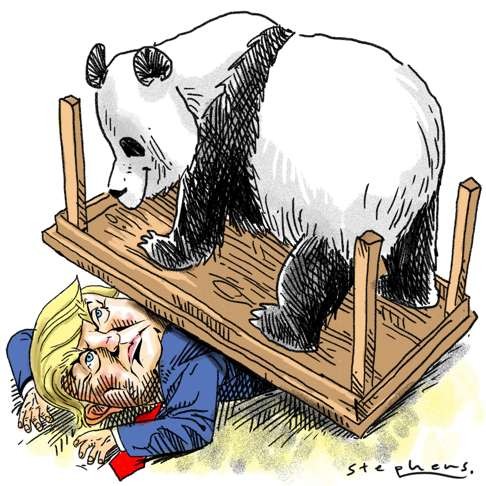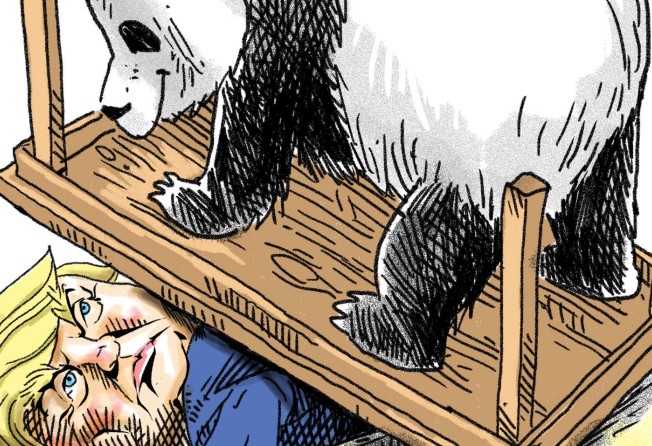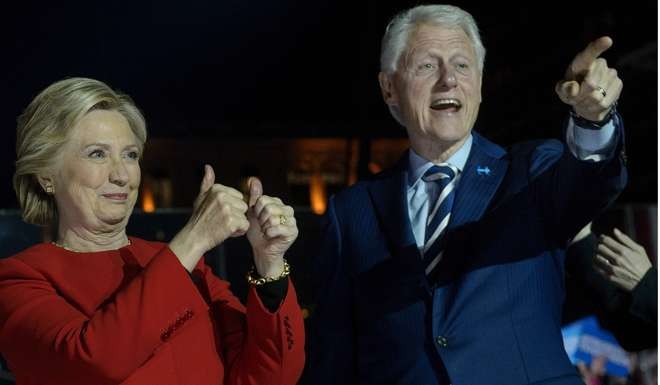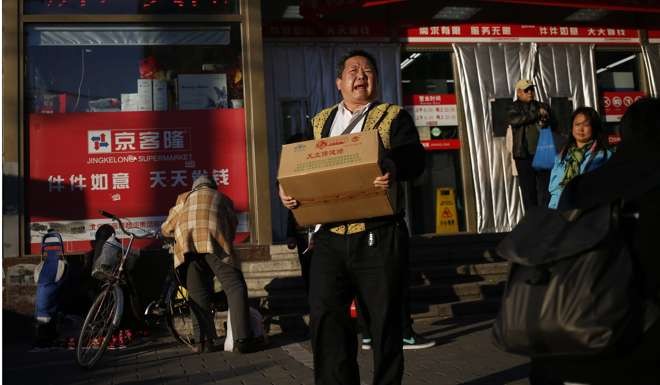
How China can turn the tables on Donald Trump’s America
Andy Xie believes the new US president will seek to pacify voter demands with a policy agenda that will be tough on China. Beijing should see this as an opportunity for reform


Blue-collar workers in America’s rust belt made Trump the next president of the United States. His promises to bring back jobs and limit immigration were at the heart of his appealing messages. If Trump wants to keep their support, he must deliver on these promises. That means he will renegotiate the North American Free Trade Agreement with Mexico and redefine America’s economic relationship with China.
For the quarter of a century after the cold war, both the Republican and the Democratic parties persuaded their supporters to vote against their economic interests.
The Republican Party conjured up a culture war to persuade low- and middle-income white voters to support them with their policies of cutting taxes, dismantling labour unions, empowering financial speculators, tolerating rampant illegal immigration, and maximising corporate profitability through cross-border arbitraging in the name of free trade.

The Democratic Party has created identity politics that push people to vote according to the colour of their skin or against socially conservative voters, the so-called “values voters”, on the other side. In the meantime, the party has become driven by corporate donations by advocating free trade and financial deregulation. And the leaders of the Democratic Party have become fabulously rich by selling influence to rich people.
Both parties have become the same. It is no coincidence that the Bushes and the Clintons have become good friends
Both parties have become the same. It is no coincidence that the Bushes and the Clintons have become good friends. They essentially do the bidding of the people who go to Davos every year. The global elite who collude across national lines to rip off working people are a real phenomenon. Wealth and income are increasingly distributed by political power and speculation. The liberals and conservatives today are like two rich sports teams. They go to the same schools and hang out at the same joints. Political competition is a game to them.
Trump is an opportunist who saw an opening in the political system wide enough to drive a truck through. A consummate salesman, he knew what to say on every occasion. That’s why he won. Now the real show has begun. Could President Trump deliver?
A redistribution of income would be difficult. Trump’s tax package would make income distribution worse. His buddies may try to deregulate the financial sector more, which would encourage even more speculation. His domestic agenda will not satisfy the voters who elected him. Hence, it is inevitable that he will turn to abroad to fulfil most of his promises.

First, his infrastructure plan must leverage the savings in East Asia. America will need at least US$3 trillion of infrastructure investment, yet its total net savings total just over half a trillion dollars per annum. Most savings in the world are in East Asia. Trump’s infrastructure plan will inevitably rely on rising interest rates and the rising dollar to suck in East Asian savings. More competition for savings could pop all the bubbles in East Asia, like in 1997.
Unless China reverses its course on depreciating the currency, a trade war is inevitable
Second, Trump is likely to do something quickly to show his determination to help blue-collar workers. China would come to his mind first. Steel and aluminium could become the first targets; not just with tariffs but, rather, all ways to stop shipments through third countries could be implemented quickly. Also, he would make a big issue of renminbi depreciation. Unless China reverses its course on depreciating the currency, a trade war is inevitable.
Third, to maintain trade, he is likely to force East Asian countries to open their domestic markets to American goods. The East Asian model is about maximising investment through forced savings. The big distortion in the relative price between consumption and investment is a key driver. High consumption prices, despite wide-ranging overcapacity in China, reflects policy bias, not market forces. Protectionist policies are likely to come under attack from a Trump administration that will always be looking for demons at home and abroad.

Many analysts believe that the Trump administration would be less involved strategically in Asia, especially in the South China Sea. They will be sorely disappointed. Trump’s foreign policy view reflects his voters’ angst on unproductive wars in the Middle East since the September 11 terrorist attacks. But, he has vowed repeatedly to rebuild the US military. America’s global military dominance, especially in East Asia where most global production and savings take place, is a pillar for its prosperity, especially for the dollar’s global status. The Trump administration is likely to be more hawkish in East Asia than Obama’s.
The rising tide of antiglobalisation in the West exposes the vulnerabilities in China’s economic model. Its investment-and-export-led model has already run into a wall. By stoking a property bubble, it hopes to buy time for global demand to come back. With Trump’s victory, that hope should be extinguished. China must chart a new course forward, not just for itself, but for the whole global economy.

China should not stand by and watch the US suck in East Asian savings at a low price to rebuild its economy. Rising interest rates and the rising dollar will just be temporary baits. In the long run, the dollar will come down again to rob the savers here. China should become a magnet for global capital to give the US some competition.
All China needs is for the government to take a few steps back
The current global savings glut is largely due to forced savings in China. It is causing overinvestment and bubbles at home and abroad. Because the country is so overbuilt, the forced savings policy has no economic merit whatsoever.
China should abandon forced savings and give the money back to the household sector to develop a consumption-led economy. Because of its potential to become the largest consumer market by far, China would become a magnet for global capital again. China doesn’t lack potential. Misallocation of resources and government inefficiencies are holding back the country. All China needs is for the government to take a few steps back.
The Trump victory is unambiguously negative for China. It could deflate China’s property bubble and increase confrontation in the South China Sea. However, if China makes the necessary reforms, it could turn the tables and cement China’s central role in the global economy once and for all.
Andy Xie is an independent economist